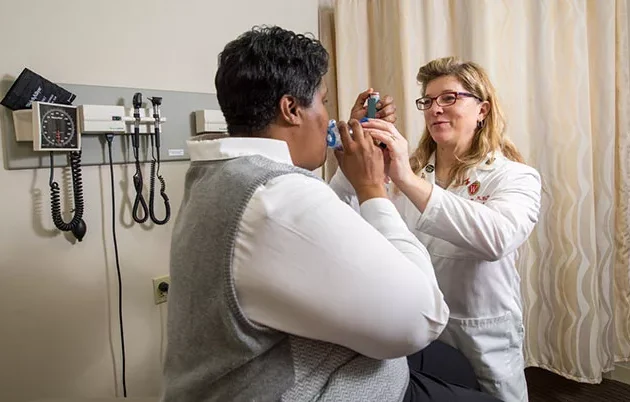In 2015, the Wisconsin Partnership Program awarded a $1 million Community Impact Grant to create the Cultivate Health Initiative, a joint project of Community Groundworks and the UW–Madison Environmental Design Lab, to expand the Wisconsin School Garden Network and grow and sustain the garden-based education movement throughout Wisconsin. The project is led by Nathan Larson, director of the Cultivate Health Initiative, and Sam Dennis, Jr., PhD, associate professor in the UW College of Agricultural and Life Sciences’ Department of Landscape Architecture. Evidence increasingly shows that educational gardens improve the health and well-being of children, including choices they make regarding fruits and vegetables.
The Cultivate Health Initiative will provide direct technical assistance to 200 educational garden sites in Wisconsin and resources on best practices in garden-based education to more than 2,000 school teachers, early childhood care providers, parent volunteers and community educators.
“Children spend a significant portion of their time in school, after-school and early-childhood settings,” notes Larson. “And pioneering studies have shown that garden-based education in those settings can improve childhood health through its positive associations with fruit and vegetables and opportunities for physical activity.”
Policy Change Impacts Obesity
The Obesity Prevention Initiative is a cornerstone of the Wisconsin Partnership Program’s strategic efforts to prevent childhood obesity. Launched in 2014, the $8.6 million, five-year initiative provides the infrastructure to bring together communities, agencies, organizations, researchers, UW–Madison faculty and others to:
- develop a childhood obesity surveillance system to track obesity and disseminate information;
- promote statewide messaging and collaboration among groups working to prevent obesity; and
- test and implement novel community-based models for childhood obesity prevention in two Wisconsin counties.
Through research and community engagement, faculty, staff and community members work to promote changes in policy, systems and the environment that will lead to improved health. The initiative’s Wisconsin Health Atlas surveillance tool will equip researchers, educators and public health professionals with data and knowledge to drive local obesity prevention decisions. Sara Lindberg, PhD, director for evaluation and surveillance, says the tool monitors rates of pediatric obesity, evaluates how interventions to combat obesity are working in communities, and helps target interventions by identifying areas that have the greatest risk for obesity and need for resources.
“No comprehensive data sets exist related to children and obesity, as they do for adults” says Lindberg. “Through our novel surveillance system, we will be able to dig deeper into pediatric obesity within communities and schools by monitoring what types of programs and policies they are implementing to promote health.”
In 2015, healthTIDE was launched to promote and support collaboration among groups and organizations working toward policy changes to prevent obesity throughout Wisconsin. It focuses on areas where evidence shows that action can impact change, such as promoting active communities, healthy food choices in restaurants and food retailers, and healthy food and exercise opportunities in schools and early childhood programs.
Faculty and community teams also are working with Marathon and Menominee Counties to pilot innovative models for childhood obesity prevention, based on each county’s needs and resources. This multifaceted effort includes community coalition building, advocacy training, and engagement around data and evidence-based options for health promotion. Hundreds of residents in each county — including parents, teachers, tribal leaders in Menominee, public health leaders in Marathon, clinicians and other change-makers — are collaborating to forge policy, systems and environmental solutions to their health challenges.
Because the initiative is anchored in the UW School of Medicine and Public Health, it has the ability to evaluate what practices are working in communities and course-correct when they are not.
“Working with our community partners promotes not only ‘evidence-based practice’ but also ‘practice-based evidence,’” describes Patrick Remington, MD ’81, MPH, associate dean for public health at the UW School of Medicine and Public Health.
The group’s research and recommendations are designed to inform policy changes that will reduce disparities and impact health.
“Environmental changes, like safe biking and walking routes, and policy changes that provide healthy meals in schools and restaurants give us a tremendous opportunity to improve health by making the healthy choice the easy choice,” says Remington.
Training Lays the Foundation





